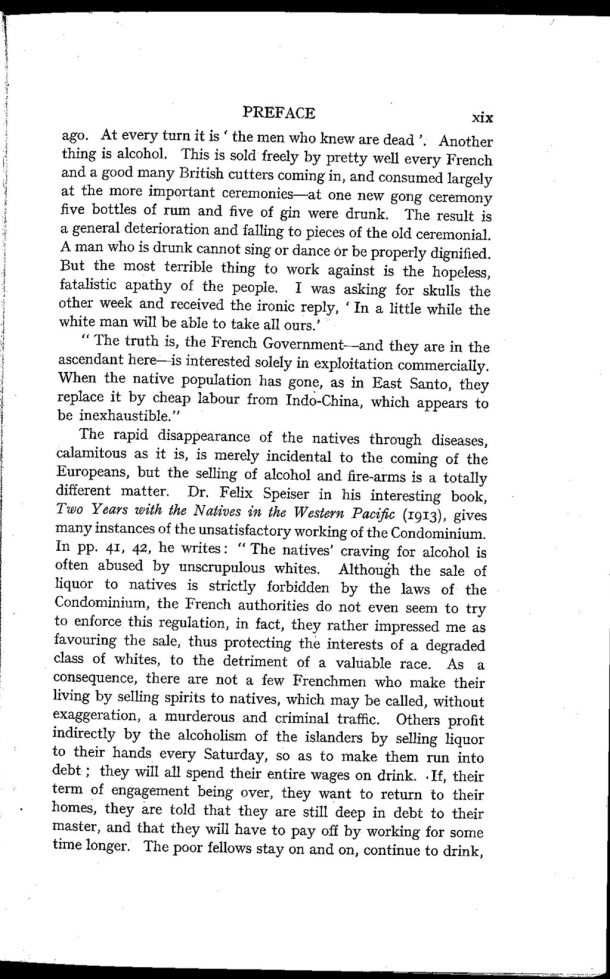|
|  [Note: this transcription was produced by an automatic OCR engine]
r_1
2
?
,:
3.
!
PREFACE xix
ago. At every turn it is ‘ the men who knew are dead '. Another
thing is alcohol. This is sold freely by pretty well every French
and a good many British cutters coming in, and consumed largely
at the more important cerem0nies—at one new gong ceremony
ï¬Åve bottles of rum and ï¬Åve of gin were drunk. The result is
a general deterioration and falling to pieces of the old ceremonial.
A man who is drunk cannot sing or dance or be properly digniï¬Åed.
But the most terrible thing to work against is the hopeless,
fatalistic apathy of the people. I was asking for skulls the
other week and received the ironic reply, ‘ In a little while the
white man will be able to take all ours.’
" The truth is, the French Government——and they are in the
ascendant here~is interested solely in exploitation commercially.
When the native population has gone, as in East Santo, they
replace it by cheap labour from Indo-China, which appears to
be inexhaustible."
The rapid disappearance of the natives through diseases,
calamitous as it is, is merely incidental to the coming of the
Europeans, but the selling of alcohol and ï¬Åre-arms is a totally
different matter. Dr. Felix Speiser in his interesting book,
Two Years with the Natives in the Western Paczï¬Åc (I913), gives
many instances of the unsatisfactory working of the Condominium.
In pp. 41, 42, he writes: " The natives’ craving for alcohol is
often abused by unscrupulous whites. Although the sale of
liquor to natives is strictly forbidden by the laws of the
Condominium, the French authorities do not even seem to try
to enforce this regulation, in fact, they rather impressed rne as
favouring the sale, thus protecting the interests of a degraded
class of whites, to the detriment of a valuable race. As a
consequence, there are not a few Frenchmen who make their
living by selling spirits to natives, which may he called, without
exaggeration, a murderous and criminal traffic. Others proï¬Åt
indirectly by the alcoholism of the islanders by selling liquor
to their hands every Saturday, so as to make them run into
debt ; they will all spend their entire wages on drink. -If, their
terrn of engagement being over, they want to return to their
homes, they are told that they are still deep in debt to their
master, and that they will have to pay oft by working for some
time longer. The poor fellows stay on and on, continue to drink,
_4
|